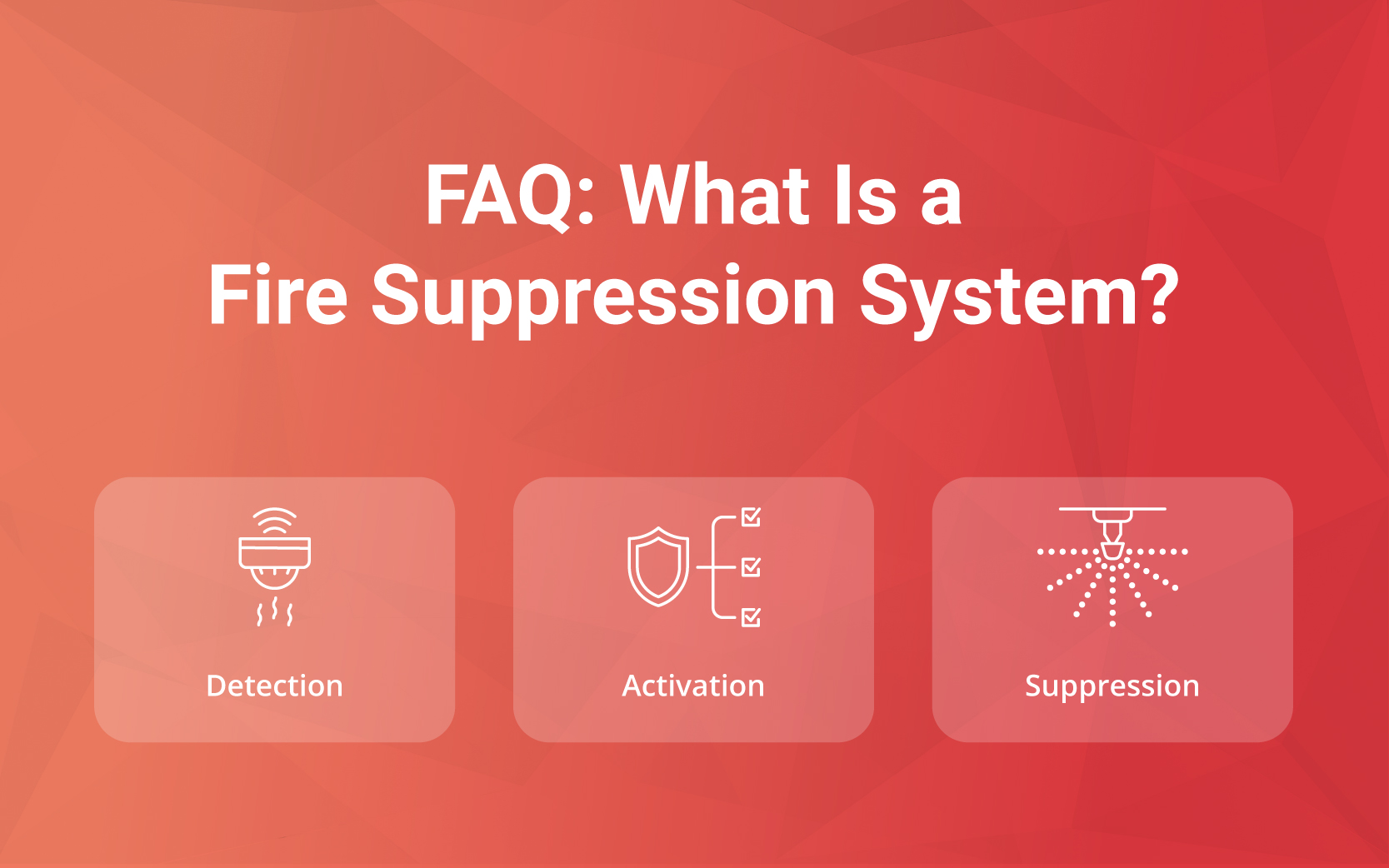For many commercial locations — restaurants, office buildings, or server rooms — fire safety is far more pressing than a basic precaution. For some locations, like those with kitchens, fire may be a greater everyday risk; for others, such as industrial facilities, there may be critical infrastructure that demands extra protection.
With so much at stake, it’s no wonder that so many business owners are asking: What is a fire suppression system, and how can it help my business?
At PEAK Alarm, we’re our region’s leading name in fire protection for a simple reason: we’ve been helping businesses do it for over 50 years. We’ve secured countless facilities across the Mountain West region against the dangers of fire and encountered many of the same questions. In this article, we’ll cover the details that every business owner should know about fire suppression systems.
What Is a Fire Suppression System?
What is a fire suppression system exactly? It is an advanced safety solution designed to quickly detect and control or extinguish fires in their early stages. A step beyond traditional sprinkler systems, these systems typically work automatically without human intervention, providing faster response and more time for emergency evacuation.
Fire suppression systems are particularly valuable in locations where water from sprinklers might be inadequate or a source of additional damage. They use a combination of detection technology and extinguishing agents to create a more comprehensive safety strategy.
How Do Fire Suppression Systems Work?
A fire suppression system works in three stages: detection, activation, and suppression. Let’s look at what each of these components involves.
Detection
Fire suppression systems are built with sensors to identify the early signs of a fire. Many are engineered to respond to smoke like a typical smoke detector, while others sense heat or flames. When the system’s sensors pick up warning signs, the next phase begins.
Activation
Once a fire has been identified, the system triggers its other functions. This phase often includes routing an alert to an alarm system. Depending on the system, activation may be automatic or manually controlled. If the right conditions are met, the suppression mechanism is thrown into action.
Suppression
Though the intended outcome is the same, the specifics of this phase vary from system to system. The system will dispense some sort of extinguishing agent, which, like handheld fire extinguishers, come in different types for different needs. Common agents include:
Water — Traditional for commercial spaces, and often deployed through sprinklers.
Foam — More common in facilities where flammable liquids may pose additional risk.
Chemical compounds — Ideal for preserving technology with minimal leftover residue.
CO2 — Best for industrial settings where other agents might cause damage to equipment.
Why Do Commercial Locations Need Fire Suppression Systems?
Though the threat of fire is a consistent risk across virtually all industries, the extent of that risk can vary depending on the nature of the location. Fire suppression systems are tailored to provide additional levels of protection for locations with an increased risk level, such as:
Restaurants — Kitchens always pose an increased risk of fire due to the heating elements involved in cooking. Some locations may even have open flames and grease, making a suppression system a valuable asset for controlling fires before they can spread and cause further damage.
Office and Apartment Buildings — Office buildings, apartment complexes, and hotels are all high-occupancy locations. In addition to the increased risk of human error, this also poses potential obstacles to evacuation. Suppression systems provide a more rapid response to better protect human life.
Data Centers and Tech Facilities — Even a small fire can be devastating to facilities that rely on sensitive electronics, especially when those devices are storing valuable information. Clean-agent suppression systems can help to minimize the loss of equipment and data in situations like these.
Experience Superior Fire Safety With PEAK Alarm
PEAK Alarm is proud to be the Mountain West’s go-to resource for fire safety solutions. Our technicians are experts in fire safety, and we use that expertise to fine-tune our fire alarm and suppression systems to the needs of your location. All of our fire safety systems are monitored around the clock from our central monitoring station in Salt Lake City. We perform all communications, support, and dispatch ourselves and never outsource your security.
To complement our fire alarm safety services, we also install and support intruder alarms and environmental detection systems to protect your business from burglary, water damage, gas leaks, and other common threats.
Whether you’re looking to upgrade your existing fire systems or reinvent your strategy with something more advanced, PEAK Alarm has the technology and expertise for the task. To learn more, get in touch for a free consultation. We look forward to protecting you.
Protect what matters most to you. Contact PEAK Alarm today.

